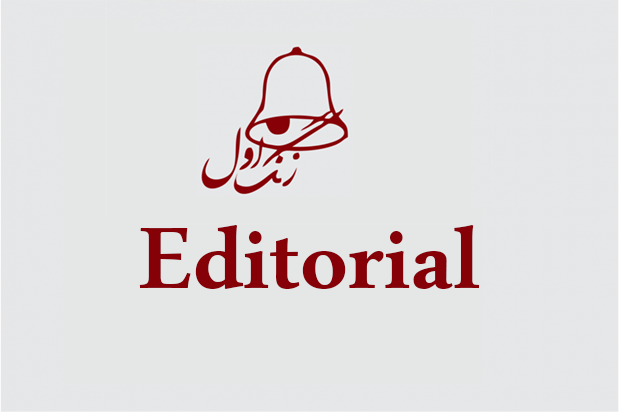While the outlook for the peace talks are unclear, some political figures have considered forming an interim government. The root of this idea goes back to the political differences these figures have with the leaders of the current coalition government. If these differences did not exist, the idea of an interim government would not have formed in their minds.
Pro-government political figures are not united, coming from different factions. While they dream of an interim government, all of them represent different pasts that were shaped by memories of armed power struggle. No matter how hard they try, they cannot cut ties with their political past and thus, they do not share the same vision of the ideal future.
Those in support of an interim government have but two goals. Their first goal is political extortion of the government in the struggle for power. Their second goal is to remove the ruling group from power. The issue of what the interim government should bring or do to improve the current situation has no place in their minds. If they manage to extort political power from the current government with the call for an interim government, they will abandon the second goal. But if they fail to reach the first goal, they will pursue the second goal with this call. Regardless, what their proclamations exclude is any concern for the political health of the community and the public good.
What is important for this group, lacking as it does any proper plan, is their own political interest. For this reason, their ideal situation would be one in which they can achieve maximum individual or familial benefit. Even the interests of the socio-political masses under their leadership in the name of the political party do not matter. If they are to achieve short-term political and financial gain, they will also gamble on the fate of the political party and the future of their affiliated political community. Therefore, we cannot count on the statements of this group of political figures and leave our political destinies in their hands.
It is clear that the current situation is not a favorable one. Poverty and corruption are rampant. There is no security and environmental health is at stake. Weaknesses and inefficiencies ripple through all levels of government. Worst of all, the government does not possess the ability to overcome this mayhem. However, we cannot support a call and slogan that has no purpose other than division.
Will the political figures calling for an interim government please explain why an interim government should be formed? What is the special function of this government? If it fails to live up to public expectations, who will be responsible for its failure? Is the proposal of such a government the solution in a situation where the Taliban seek to seize power and establish an emirate in Kabul? Unfortunately, these political figures have not yet been able to provide convincing answers to these questions.
The Taliban have not yet formally called for an interim government. In their view, there is no legitimate government in Afghanistan that can be replaced by an interim one. From the Taliban’s point of view, the government is under the authority of an administration that has the status of a occupying force to them. Therefore, their desire is to dismantle this government and establish their desired government. If political figures think that they will resolve the power struggle with the Taliban by forming an interim government, they are wrong. The Taliban do not want an interim government but a pure Islamic government and expect all social and political groups, including the Kabul administration (according to the Taliban) to be absorbed and dissolved into that emirate.
Given such circumstances, the emphasis on the formation of an interim government, without a clear structure, purpose and mission, can only set the stage for the collapse of the current republican system. This is more so in a situation in which the Taliban are more arrogant than ever and are not satisfied with less than absolute power. It is suggested that a distinction be made between opposition to Ghani and Abdullah, and opposition to the current system of government. Those opposing the continuation of the work of Ghani and Abdullah should not turn it into opposition to the republican system. Forming an interim government is not the way to oppose government leaders. There are many legal ways to hold the government leaders accountable in the interest of the people, all of which are given in the constitution.












